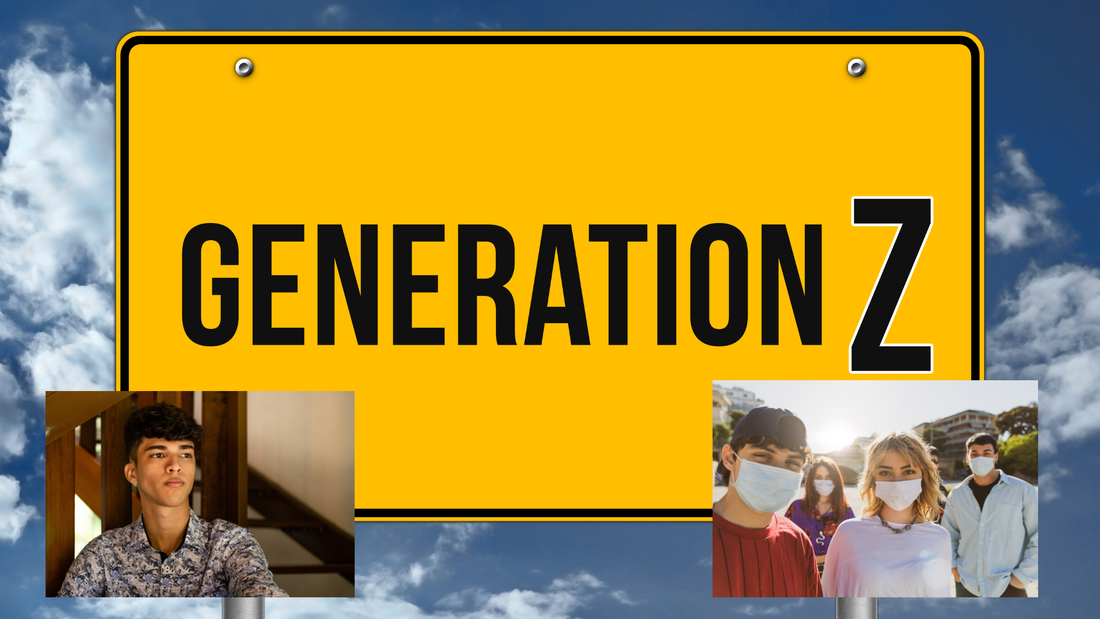|
Vindication: Memorial and Springfield Clinic have plans to reestablish Parking Valet Services. On September 18, 2023, I published Closing the Valet Parking Program at Memorial Hospital makes no sense and loses dollars. In that blog I referenced the first Illinois Times article: Tough choices at Memorial Health. The latest Illinois Times article, Memorial Health to bring back valet parking shows that when we speak, institutions do listen, eventually. While Senior Sidekicks was not the only voice protesting, our position against the idea was probably the most specific. Sadly, Memorial also made two other wrong-headed cuts; removing the chaplains and ethicists. My next blog will discuss the specific injuries the loss of those two divisions are inflicting on patients and the hospital itself. Stay tuned.
0 Comments
Stories in the Springfield Business Journal and State Journal-Register have described staff cuts at Memorial Hospital, and that the Valet Parking Program is closed. Memorial’s decision is wrong. There are three ways to make money; one is to bring income; another is to plug the leaks in the operation which drain income. Read this and you will arrive at the third way to make money. Think of a hospital like a swimming pool; adding water only works if it stays in the pool. Cutting Valet Parking is the equivalent of cutting 8 holes in the pool’s lining! The Valet Parking Program produced material benefits which shield, the income-producing, aspects of the hospital’s operation. The State Journal- Register’s article included interviews with users of the valets who mentioned some of the issues described here. The following observations are the accumulation of my 17 years as a Medical Visit Companion through Senior Sidekicks. My work repeatedly took me through both Springfield hospitals. When valet parking was established, its founders may not have realized all the ways it would add value to Memorial. Now we will learn of these benefits by their absence. Drain One: Traffic cop needed. Many people converging on a small area can cause traffic jams and delays. Add infirm patients to the mix, and safety concerns rise. This situation reminds me of navigating O’Hare airport. O’Hare has officers; Memorial didn’t need them because the valets coordinated ramp traffic. The hospital will need to hire off-duty officers: an added cost. Drain Two: Missing point of contact. Valets performed that function for the entry area. They answered questions and gave directions: freeing other staff to do their jobs. Now, no one coordinates. The hospital will be forced to re-hire part of the former valets to monitor the area, another added cost. The valets knew who to call if a patient appeared to be in distress, a mishap, or a traffic accident. Who is in charge now? It’s another rehire cost. Drain Three: Rising liability costs. Injury prevention became one of the defacto tasks of the valets. They made sure the brakes are actually set on the wheelchair before the patient is transferred. Valets watched for trailing clothing which could get caught in the wheelchair wheels. Simple things like these prevented tip-outs and injuries. Now we will see how many incidents were previously prevented! Valets also assisted when a driver appeared to be untutored or infirm. (Now, who will help a 6 ft, 250 lb, post-op, man that is being assisted into a car; by a 5 ft, senior woman?) I predict that Memorial will see a rise in the rate of additional injuries to patients and their families. More incidents push the liability insurance through the roof; another unnecessary, cost. Drain Four: Loss of society causes loss of manageability. When the valets retrieved the cars, the family stayed with the patient. Patients can react to their procedures. I have observed some patients that seemed disoriented, looked exhausted, and sometimes shivered, even when the weather is warm. Occasionally, patients become agitated. Family knows the patient and how best to respond. Thus, a small situation didn’t become a big scene. Now these situations will drag other staff away to respond. The loss of valets forces the family away from the patient to hunt for the car. Drain Five: Delays and congestion in the reception area. Valets reserved a certain area of the lot for their cars which cut the response time. No valets=need for a designated area. Thus, a family must trek through the lot for the car. Since everyone must trek, moving patients through the transport area will slow down. This will lead to delays in getting patients out and crowding in the patient waiting area. How does Memorial plan to keep patients at a safe distance from each other to prevent a rise in infection rates? How does a rise in infection rate affect to the Memorial’s licensure? Not all costs come in money form. Drain Six - Part 1: Traffic jams due to delays. The family must leave their cars in the ramp to retrieve patients. A family might leave the car running, possibly with an open door. Families may not have set the parking brake even though there are two hills at either end of the ramp. Drain Six - Part 2; Preventable Issues; A. An unset parking brake leads to a rolling, unmanned car. B. A passing car clips an open door. C. An item left on the seat (cell phone) goes missing. D. Cars with two open doors (second one opened for the patient) take more space; crowding and already crowded drive. Do any of these scenarios remind you of O’Hare? No valets = more traffic jams and more accidents. Hired officers will be needed because the valets, who prevented them, are gone. Drain Seven: Accidents caused by family rying to avoid the parking ramp; Eventually, crowding and congestion will give rise the use of ramps or stairs by post-op patients; leading to incidents. Memorial’s front was never designed for frail patients to negotiate. The valets ensured that patients would leave the hospital quickly, and in cars. Now, some families might try to walk the (patient) to the parking lot! Another rise in liabilities=another rise in costs. Drain Eight - Part 1: Missing wheelchairs and accidents; The scarier scenario would be the patient, in a hospital wheelchair, piloted on their maiden voyage by family! Who will stop that untrained family, or prevent them from taking hospital wheelchairs? How would some of the patients make it all the way to the car without a wheelchair? Drain Eight - Part 2; How many times have you seen grocery store carts left beside the disability parking places? The whole Memorial lot becomes a defacto disability parking place. Like a grocery store, Memorial must hire staff to collect wheelchairs from the parking lot. Have you ever seen a homeless person who “adopted” a grocery cart? Does Memorial believe no one will “adopt” a lonely wheelchair from a parking lot? Add missing equipment to the other, above-listed costs incurred by removing the valets. Keeping the valets would have been cheaper for Memorial. Now operations will cost more because the valets are gone. There are actually three ways to make money, bring income, plug income holes and avoid making short-sighted decisions. Memorial has made a short-sighted decision by removing the valets. Valets don’t cost as much as they pay. What worries you about these cuts? Do you know someone who will have trouble getting care because they can’t access it? Do you have any ideas to solve this problem? We want to hear from you. Contact Senior Sidekicks, on the following form. We’ll gather your responses. Your feedback will guide our next steps. I just finished reading the Esquire article, The Silent Epidemic Affecting Generation Z, by By Anna Altman
The above-listed article describes the elder caregiving bind which has fallen on Gen Z’s and its effects on their education, career development and forming families of their own. I dedicated my working life to finding solutions to eldercare; the-Gen Z caregivers issue was something I hadn't encountered until now; WOW! I worry about the Gen Z's being able to finish school, form families of their own, and move ahead in their careers. Unless we address this issue, our society will have a sad experiment in the affects of stress on the young. None of their goals are selfish; they are integral to the forward motion of our society. A better-educated younger generation will be more likely to have income to afford help for them in the future. Promotions at work helps secure their future and may grant benefits in their payment package as they become more "valuable" to their employers. Forming families of their own is the key to creating the next generation who will take over those jobs and help care for the Gen Z’s when they need it. These kinds of help today are NOT COSTS; they are INVESTMENTS in our country's future. We need to look at society's investment in these younger caregivers as though we are planting an orchard, not planting a crop. A crop is harvested at the end of the season, short term result. An orchard takes more years to reach production. However, it also produces more valuable 'crops" for a longer period of time. Let’s not cut down these young ones before we have all benefited from what they could do to “feed’ this country. In "Companies need to do more for adult caregivers. Here’s why," by Darya Moldavskaya, the author touches on several points that have frustrated my clients who are, or were, caregiving adult children. Elder caregivers constantly juggle their work-family-household-AND-Mom lives. Introducing the topic through a Lunch-and-Learn format is great because the company already has the employees there. Now that Zoom is ubiquitous, employees who work split weeks can still attend those L-and-L's.
Senior Sidekicks' Parenting Preparedness course is formatted to fit into a luncheon series: Preparing to Parent You Parent. I recommend that companies bring adult caregivers, as well as Caregivers Emeritae (those whose elders have passed away) into the process to develop an Elder Caregiver Support Benefit Package. This blog is prompted by an article I recently read, "Is aging a disease? Treating it like one could be worth trillions, study says," by Hannah CritchfieldTimes staff I'm old enough to remember when childbirth was also considered a "disease". Doctors, usually men in those days, did not think women needed to know anything about the birthing process. Midwives had been pushed out. Women were given an anesthetic that caused the mothers to bang their heads. To "treat" this, the delivering women were given football helmets to wear! The Lamaze Method was really a revolt in answer to this revolting scenario. Childbirth today is much more individualized, humane, with mothers who are knowledgeable about what is happening. Midwives and Dullahs are back in the process. Childbirth is not a disease. Old age is no more a disease than pregnancy or childbirth. I know this both from 50 years of working with seniors and as one experiencing age myself. Old age is a stage of life only. Like any other life stage, people can develop diseases. Some conditions are the result of genetics. Many are the result of lifestyle choices or environmental factors. Some conditions resulted from poor medical management. Younger people could also have diseases for any of these same reasons. Healthy people of any age will perform better for longer; including seniors. The change in old age is a loss of resilience. I compensate for that by modifying my lifestyle and paying attention to changes. I jump on anything I see immediately. This country MUST change to a medical management model, aimed at early intervention and prevention. Such a model begins at birth to be most effective. Waiting until old age, then labeling that stage a disease, is the wrong term: it should be labeled our society's failure! As one of the women who wanted to be in charge of the births of my two children, I declare war on anyone who wants to turn yet another natural life process into a disease!! We burnt the long line bras, (and draft cards) we fought rules requiring us to get a man to co-sign our home loans, we demanded the right to run for office; not for coffee. 76-78 million of us will not accept being declared a disease!! As we march into our future, more and more of those who live longest will be women. We are the women (and men) who said "No" to many things; this will be the next one. We may be older and wider, but our spirit hasn't died. Instead, recognize us as the pioneers in a demographic revolution. This is the first time in history we have had so many people living to such later ages. We've had babies for millennia; we haven't had as many elders. We are designing this pathway in life. Composing a new future means rewriting some other parts of life: since life's horizon is longer, how do we help younger people to plan for a 3rd age? What role do we assign to elders? Golf for 40 years? No way! In my 50 years of work, I saw these things helped older people to remain healthy and functional; Purpose, Meaning, Connection, and Value. Therefore, we are seekers after these things. That is the only label I will accept. Care consultations help families avoid getting lost in the maze of payment options for elder care.
This blog series illustrate the ways a care consultation can save families money, time and trouble. These stories are drawn from our experience with families and their elders: identifying information has been changed. Paying for elder care is like making one’s way through a maze. In a maze, you can backtrack and take a different turn and it will only cost you time. In elder care, the wrong move can be very costly. Annie’s Mother was diagnosed with cancer and needed treatment. Following treatment, she was sent to a rehabilitation facility and then went home with help. All went well until she fell. The paid staff found her on the floor and sent her to hospital. Annie arrived to find her Mother in the ER. Tests showed she was dehydrated, poorly nourished and had not taken all of her medications. The hospital was overcrowded and so was the ER. Mother didn’t even get a room in the ER for 24 hours. The staff began treatments and Mother improved. Rather than sending her home, Annie decided it would be better to return her Mother to the rehabilitation facility. Annie also considered moving her Mother so she would not live alone to avoid future problems. This was especially important because Annie’s job took her all over the state. In an emergency, she might not return quickly. Annie didn’t review her Mother’s Medicare coverage. Mother had only been in the ER under observation. She had never been admitted to the hospital. Medicare covered many parts of her ER treatment. If her Mother had been admitted and had stayed long enough in hospital, she would have qualified for rehabilitation: she didn’t. Annie received the Medicare determination letter several weeks later: not covered. Annie returned her mother home, with more help, medication supervision, and more worry while she was on the road. She had to pay $18,000 to cover that stay. Consultations don’t cost, they pay. This blog series illustrates the ways a care consultation can save families money, time and trouble. These stories are drawn from our experience with actual families and their elders: identifying information has been changed.
Consultations help avoid mistakes; like ordered work boots but getting pink shoes with 4 inch heels Mike emailed me about a consultation and left his phone number; I called. “It’s about my Dad, he’s been losing it since my Mom died”, Mike said. I asked what he meant by, ”losing it”. Mike described his father’s problems with paying bills, keeping his place clean, and forgetting to take medicine. I explained how our consultations worked. “I just want to know which nursing home to put my Dad in!” he exclaimed. His tone seemed irritated. I explained that there were many kinds of care, some were covered by Medicare or Medicaid and some were not. Consultation is about taking various measurements and to find the right fit. Let me show you why I can’t just give you the name of a nursing home, I explained. Suppose you ordered a pair of shoes. When you opened the box, you found a pair of pink, 4-inch heels. Would those work for you? Before anyone buys shoes, we learn our shoe size and decide how we will use them; for socializing or construction work. We know this because we have purchased shoes before. Care consultations help families gather the right measurements so elder care fits their needs. Getting the right care for someone is usually a first-time experience for families. There are many kinds of care and different ways to pay for it. It’s as important to take measurements in your Father’s case as it is to get the right shoe size. It’s as important to learn if his condition might improve or if he is unlikely to improve. It’s really important to look at how his care will be paid. I can help you get those measurements and prepare you for the process. Our consultation cost is a fraction of the cost of care. You could return the pink, 4-inch heels for a refund: you can’t get a refund on elder care. My youngest sister had struggled with cancer since 2019. She passed away on January 28th 2022 @ 2:53pm.
Valentine’s Day was approaching but it was the last thing on my mind. I remembered that she had always sent me a Valentine; usually home made. She was the only member of my family who did. Many times I had told her she didn’t have to go to all that trouble but she did it anyway, year after year. This year would be different, there would be no Valentines. Then our doorbell rang and my husband answered. All I could do was hear their conversation. Our caller was a little neighbor girl. The sound of her small voice reminded me of my sister. She presented us with some cookies and her hand-painted card. “I thought you would like these;” she said. We had never received a Valentine gift from them before. My husband handed the bag to me. I ate a cookie and cried; it was just like my sister used to make. This gift was “ordered” from beyond and arrived at my lowest point: one final Valentine. Love is stronger than death. This event made me think about my work with caregivers. How does the process of caregiving’s end impact them? A caregiver, whose recipient dies, has a loss of role as well as a loss of a loved one. Society isn’t always helpful; “Why don’t you go out and celebrate your freedom?” [from caregiving] How would you respond when you’re in mourning? Some people inquire about the caregiver’s next career move; “Are you going to go get a job?” Many caregivers have had to give up promotions, to preserve their caregiving role. They re-enter the workforce with a financial deficit. Caregivers need to re-enter the workforce but how and where? What skills do they need now? Where are the new jobs? Thus, former caregivers face a more uncertainly-funded retirement. Wouldn’t you feel lost when you realized that work-life, and former friends have moved on? Do these conditions make a former caregiver want to celebrate; or to wonder where to turn? (!) Still, there is the ever-present grief. Some cultures weave that process into a ceremony. Ceremony helps in two ways, it commemorates and encapsulates. Commemoration seems obvious; like saying a prayer or lighting a candle. Encapsulation isn’t as obvious. Once the candle is lit or the prayer said; it’s done. Once a physical action expressed the emotions of the Caregiver its performance holds those feelings. Caregivers need to be honored and recognized for their loss as well their service. The emotion becomes action; as the action contains the emotion. Giving emotion a place and holding it, frees energy to devote to caregiver re-entry. Paid caregiving staff would benefit from recognition as well. I attended a funeral for an elder who had full-time care at home. The family, wisely, invited the former care staff to the funeral and the meal-of-condolence afterwards. Family members introduced the staff to various mourners. That’s not only kind; it’s necessary. Paid staff can become attached to their elders. “They also serve who only stand in wait”* (on the elder). Would our society attract better caregiving staff if they knew they would be recognized for their service? Transitions from caregiving require time, and money. That same family paid each staff member for two weeks in addition to their time at the funeral. Hooray! They need to find another job. How would one leap to a new job in 24 hours? Former family caregivers find their service is considered “time-off” by employers! Really! Managing elder care takes skill and coordination; valuable traits. Getting the elder to cooperate with care is an art; like that of negotiation. It’s time to see caregiving as a valuable experience. Family caregivers need the same things but there is no system for them. Military personnel, re-entering civil life, can get help with training, and support. These processes of loss, grief and rebuilding in caregivers goes unrecognized by society; leaving them isolated. As the GIs returned from WWII, there was the 52-40 club. Each person got $40.00 for 52 weeks. There is no such program for former caregivers. Why not? Oh NO! Such a program would cost money! Family caregivers usually serve for free. They SAVE over $10 billion dollars for our society. If we had to fund that care, our country would be in serious trouble. If we had a caregiver re-entry program it would be a WIN, WIN, WIN. First Win: We could incorporate already-existing social structure like churches, to incorporate caregiving recognition and support into their mission. Former caregivers could pass on their acquired wisdom to support new caregivers. Second Win: Money spent on education for former caregivers pays off in better wages earned and more tax revenue for society Third Win: Former caregivers, who are better able to recoup their lost earnings, would be less likely to require public assistance in their old age. A former caregiver re-entry program wouldn’t cost, it would pay. * A Tale of Two Cities, Charles Dickens IMy perspective on Covid is drawn from an early childhood experience with Polio. I believe it holds the key to unwinding the political binding that is strangling our vaccination effort.
It was summer, school was out and my sister and I could hardly wait to play with our friends. I already knew there was a sickness that children got and it made them so they couldn’t run and play. That seemed like the end of the world to me! Every day the radio reported the latest number of children with Polio and the number of deaths. After a week or so, my mother announced that we were “going to stay home and make things”. That seemed odd. We made all kinds of things; I learned to sew that summer. When I asked if Olivia could join us, Mom refused. Mom told us that Olivia was away on vacation. Later, I saw her mother driving their car. Olivia must be home again. Still Mom refused to allow her to come. She also refused any other children to come. Mom seemed worried all the time; I didn’t understand why. I thought I had done something SO horrible that she wouldn’t talk about it! Finally, I asked to go see Olivia at her house; Mom got really, really upset. I couldn’t make any sense of her reaction; what had I done? Did I do something to Olivia? My curiosity got the better of me. While my mother was putting my sister down for her nap, I left the house anyway! When I knocked on Olivia’s door, her mother answered. She seemed startled to see me. I asked to see Olivia but her mother replied; “is it OK with your mother?” “Yes”, I lied. She left me standing on the front stoop while she went into the dining room. Olivia didn’t come to the door. Instead, I heard a sound: whoosh, whiish, whoosh, whiish. It sounded like a giant breathing. Eventually, Olivia’s mother came to the door and invited me into their dining room. All the dining furniture was gone. In its place was a giant machine that wrapped itself around Olivia like a tin can: only her head showed. Olivia turned her head (sort of) and greeted me. I couldn’t speak. She tried to explain that she had gotten Polio. I still couldn’t make a sound. I don’t remember exactly what I did next. Eventually, I found myself sitting on the curb about midway between her house and ours. I have no idea how long I sat there. Eventually Mom must have come looking for me. She bent down and looked intently into my eyes. I still couldn’t talk. Her facial expression was the same as the time my sister had been bitten by a dog. Mom gathered me up and took me home. She looked me over physically. Seeing no injuries, she gave me a pill and put me to bed. That whole experience was buried deep in my mind; until Covid. During the first lockdown, I was awakened by the sound: Whoosh, whiish, whoosh, whiish. I got up and checked the furnace, no noise like that. It happened for several nights; I checked the windows and the plastic sheeting over the glass which sealed out air leaks. I found no “cause”. Finally, Olivia greeted me one night and I realized where I had heard that noise! My encounter with Polio had come back to me! Shortly after that summer, the radio announced the “Salt” vaccine. Mom corrected me, it was the Salk vaccine. The school gymnasium filled with children and their mothers. We were lined up, given the shot, and a card. I didn’t like shots. Mom looked elated! She took us out for a chocolate soda to celebrate. Celebrating seemed an odd way to respond to a shot. Olivia’s family moved away. The next year we moved. Only later did I learn that the shot I received was to prevent me from getting that sickness so children couldn’t run and play. Based on this experience, I suggest the following methods to refocus on Covid as a disease PERIOD. Polio and the concept of prevention through vaccine remained PRESENT to me because of that (buried) experience. Covid isn’t real for some people because it’s not present. Bubonic Plague left bodies in the streets. The 1918 Flu pandemic left people dying at everywhere. Nurses and doctors saw Covid effects. Those who tried to care for loved ones at home saw Covid up front. Covid isn’t visible to the general public when most patients are whisked away by ambulance, and sequestered in ICUs. WE NEED TO MAKE IT VISIBLE. Children who suffered from Polio came home in wheel chairs, crutches and iron lungs. They represented the effects of a dread disease. Long haul Covid sufferers don’t have appliances. They have memory loss and trouble breathing. That’s harder to see. We NEED TO MAKE VISIBLE THE EFFECTS OF COVID IN THOSE WHO HAVE RECOVERED. When I was born, there was only the Small pox vaccine. I remember grownups with a scarred circle on their upper (usually left) arm; their vaccine site. Bringing up a child was no walk in the park; whooping cough, measles, mumps, chickenpox, diphtheria and polio were only some of the hazards of childhood. Generations of parents spent sleepless nights in prayer beside children’s beds. They rejoiced at each vaccine because they had witnessed the alternative. Each vaccine removed the presence of an illness but it also broke the connection with lived experience. WE NEED TO REBUILD THAT BRIDGE. We need to reconnect to dots for those whose lived experience can’t teach them about such consequences. Covid -first wave was real. Covid Variant is also real WE NEED TO MAKE IT IMPORTANT ENOUGH. Who is important enough to make a difference in our response? When HIV-AIDs developed it only affected gay men. It was first called gay cancer. Some believed it was the judgment of G-d and should be left alone. Then HIV jumped to heterosexual people; it became important. We now have treatments. At first, Covid only took the lives of elderly people in nursing homes. The deaths of younger people in the first variant wave made some realize that a-n-y-o-n-e could die from Covid. Do the right people have to suffer before we take this seriously? Now is it important enough? This will not be our last plague or pandemic. What changes we make in society’s communication methods now, will decide if we surmount the next two SARS Covid-19 variants. Technology may give us wonderful vaccines, but these will be useless if we leave them on the table due to misinformation. Thank you Olivia, your life and death were not in vain. You showed me consequences and I am grateful for your gift. Covid-19 has required us to protect ourselves by wearing masks. Sadly, masks interfere with hearing aids. Thus, those who want to hear must contend with protection that makes hearing aids come loose, fall out of the ear, or tangled with the hearing device. That frustration could lead to quitting the mask or quitting the hearing aids.
We need both. Numerous research articles have documented the connection between maintaining one’s hearing and keeping one’s memory. Hearing aids are for more than hearing. On the other hand, the CDC guidelines are quite strict about wearing a mask to protect ourselves from Covid-19. We will need masks until we can develop an effective treatment and or a vaccine. That could be years. In Help! My Face Mask Is Getting in the Way of My Hearing Aid, AARP offers some ideas. While these might do for now, we should consider developing an easy-to-use, simple, device that does the job. If we can develop safety pins and zipper; we make a better device. |
Author "A Senior Moment" is written by Ms. Sara Lieber, owner of Senior Sidekicks. Ms. Lieber has over 30 years of experience in senior care. Archives
March 2024
Categories
All
|











 RSS Feed
RSS Feed